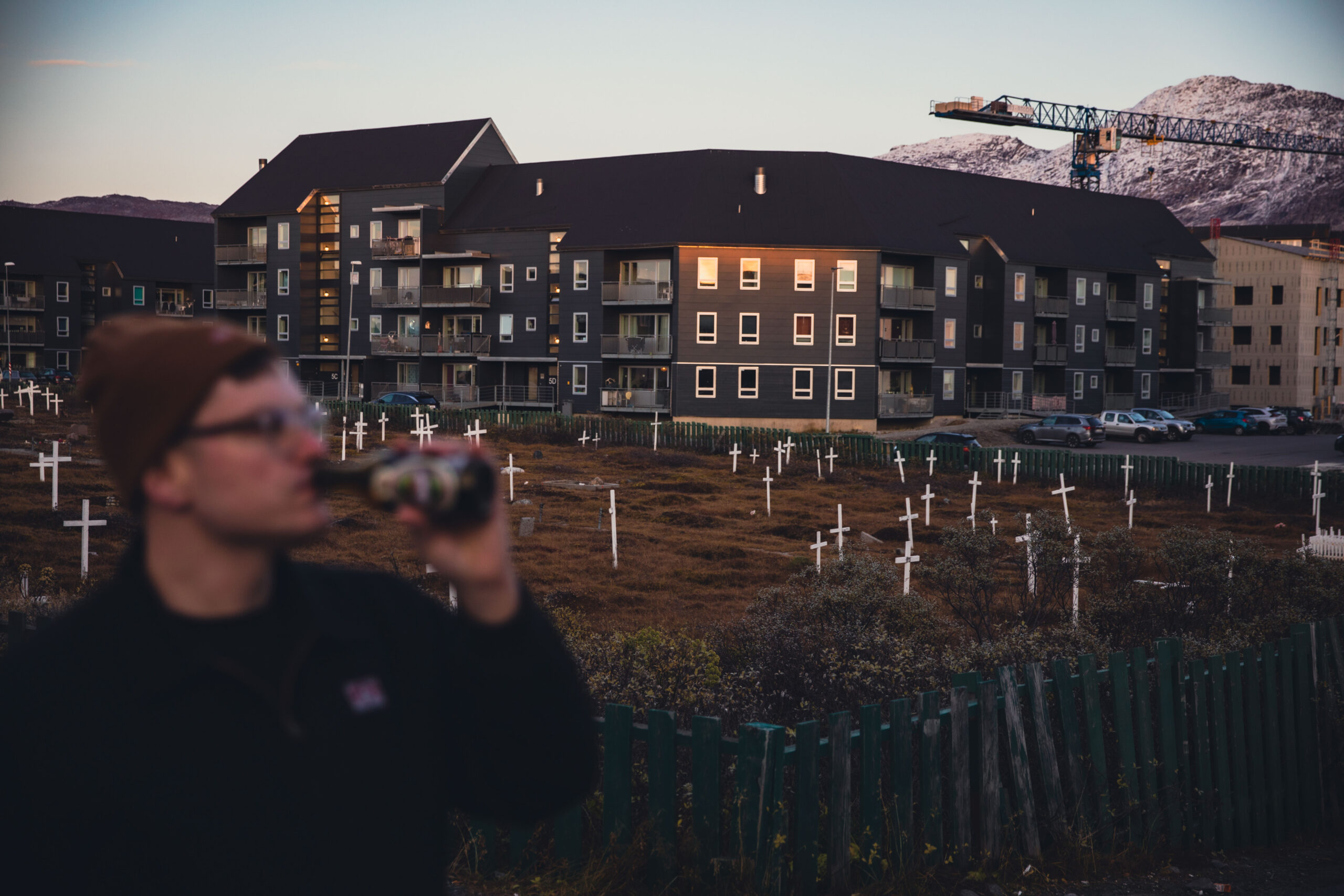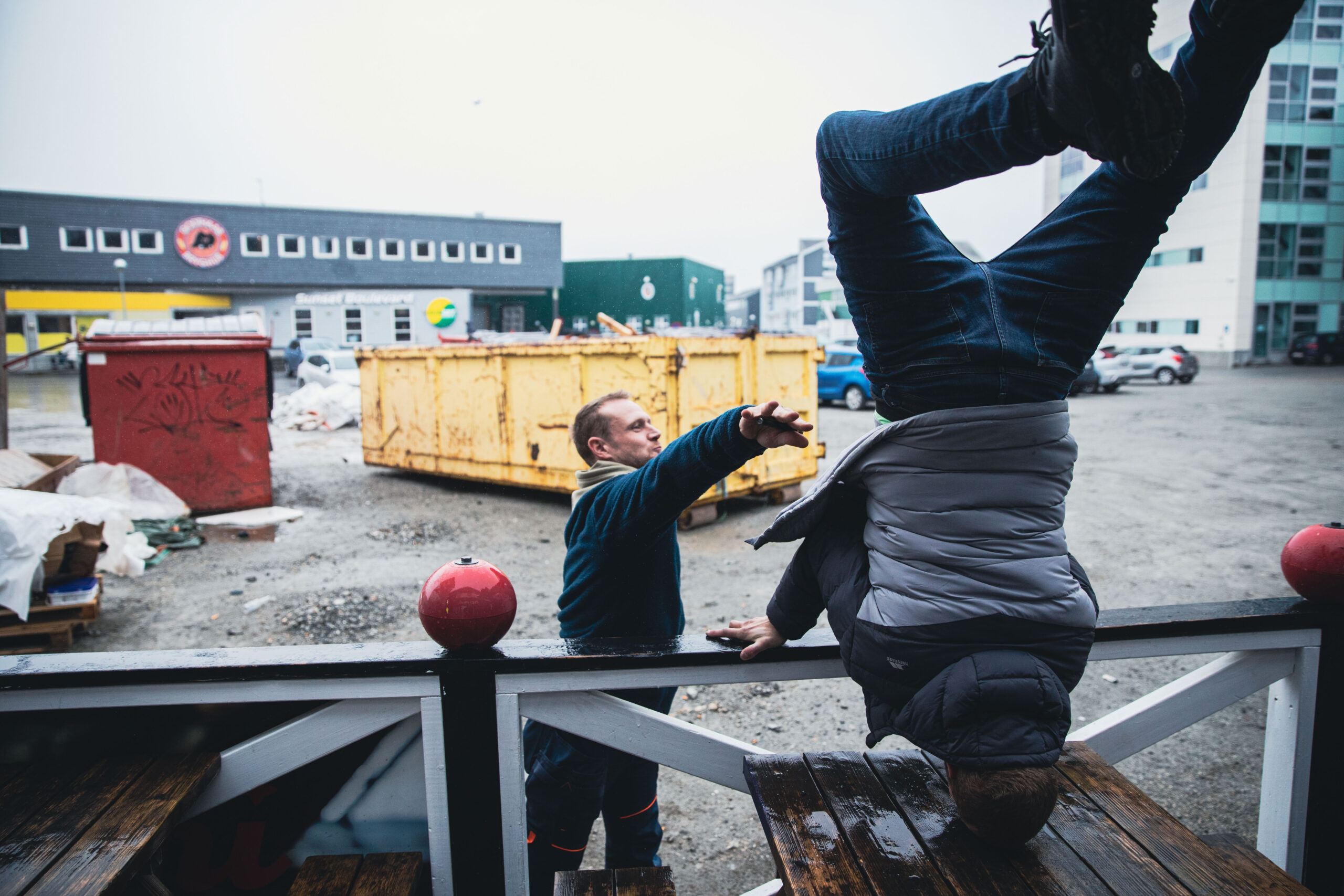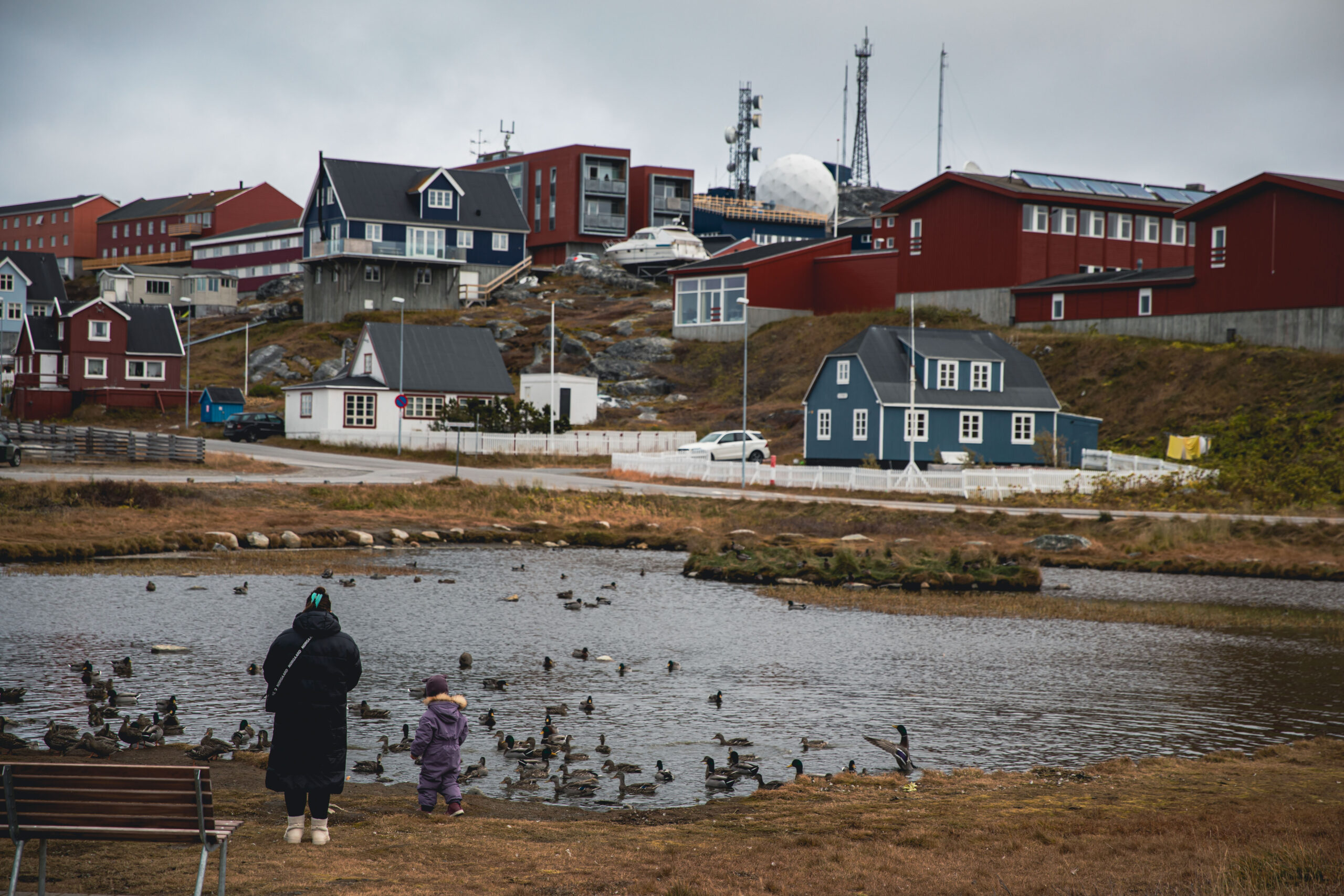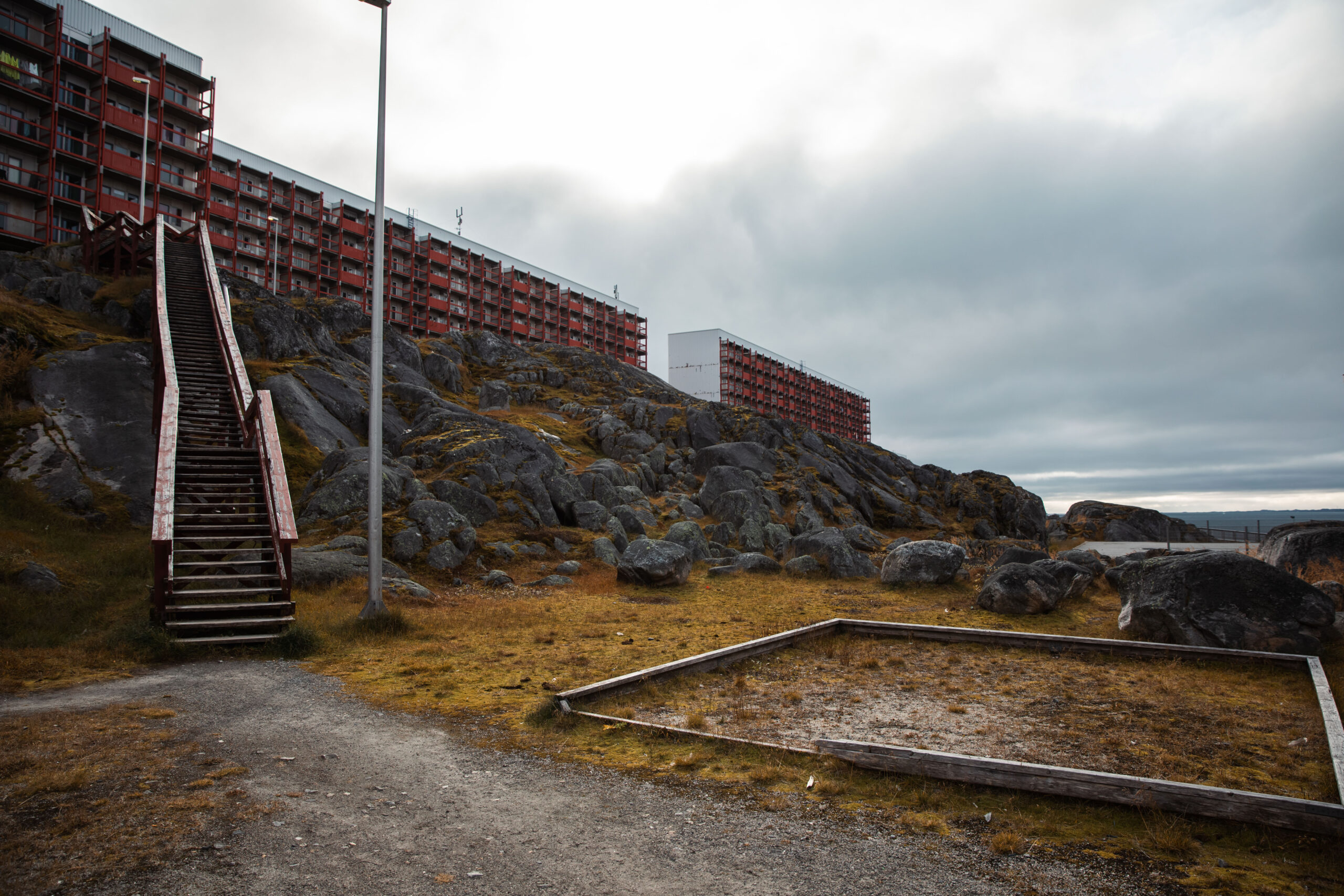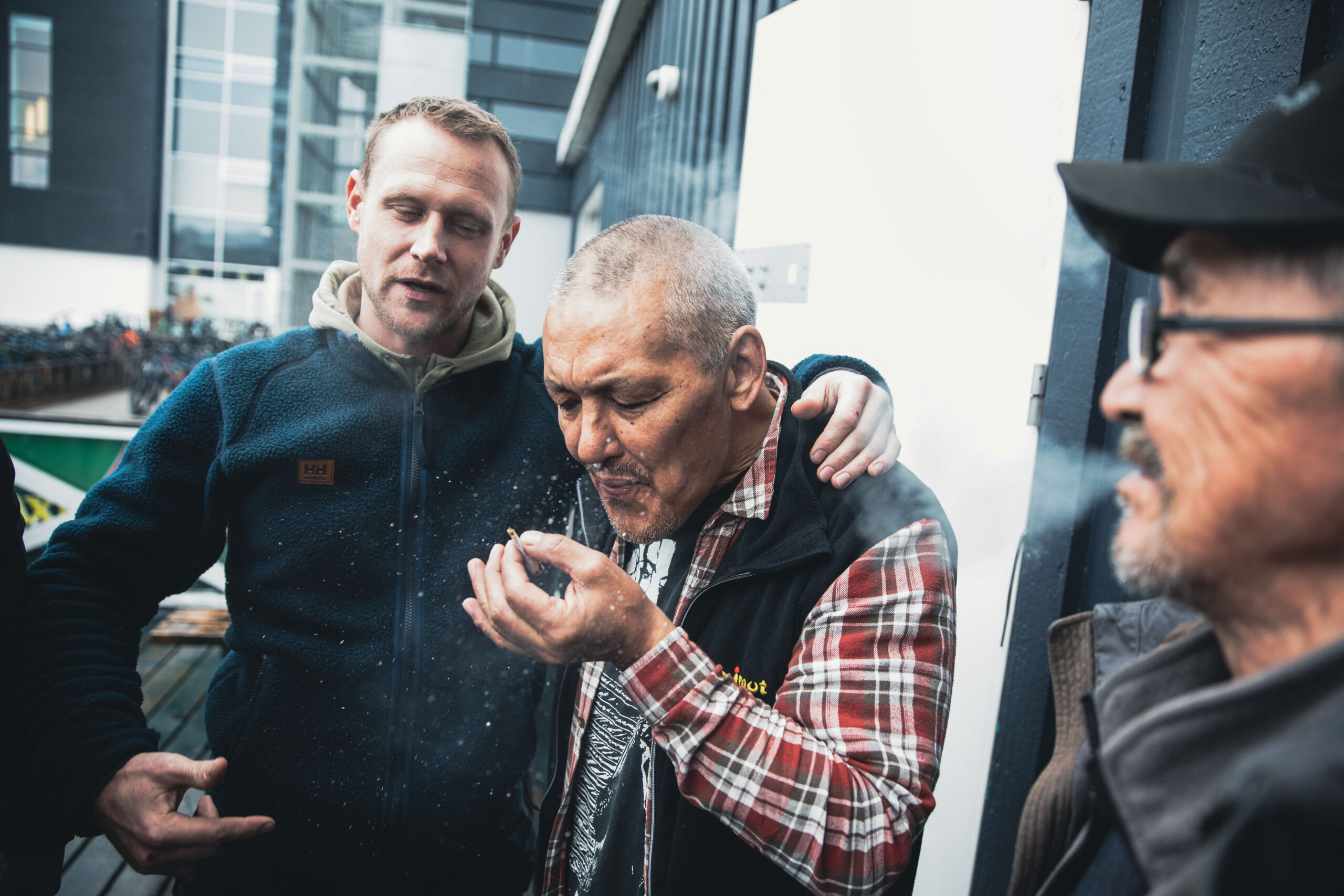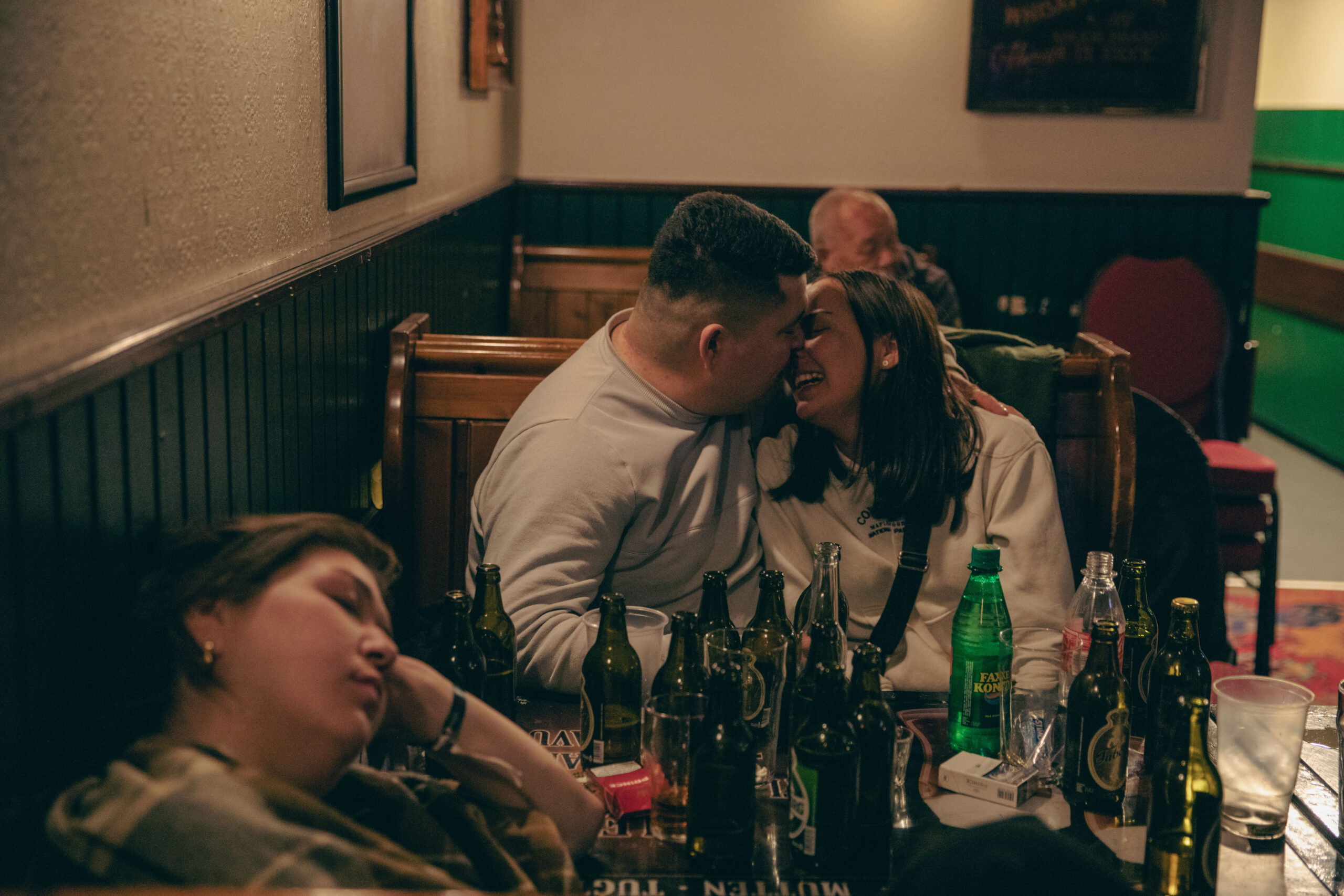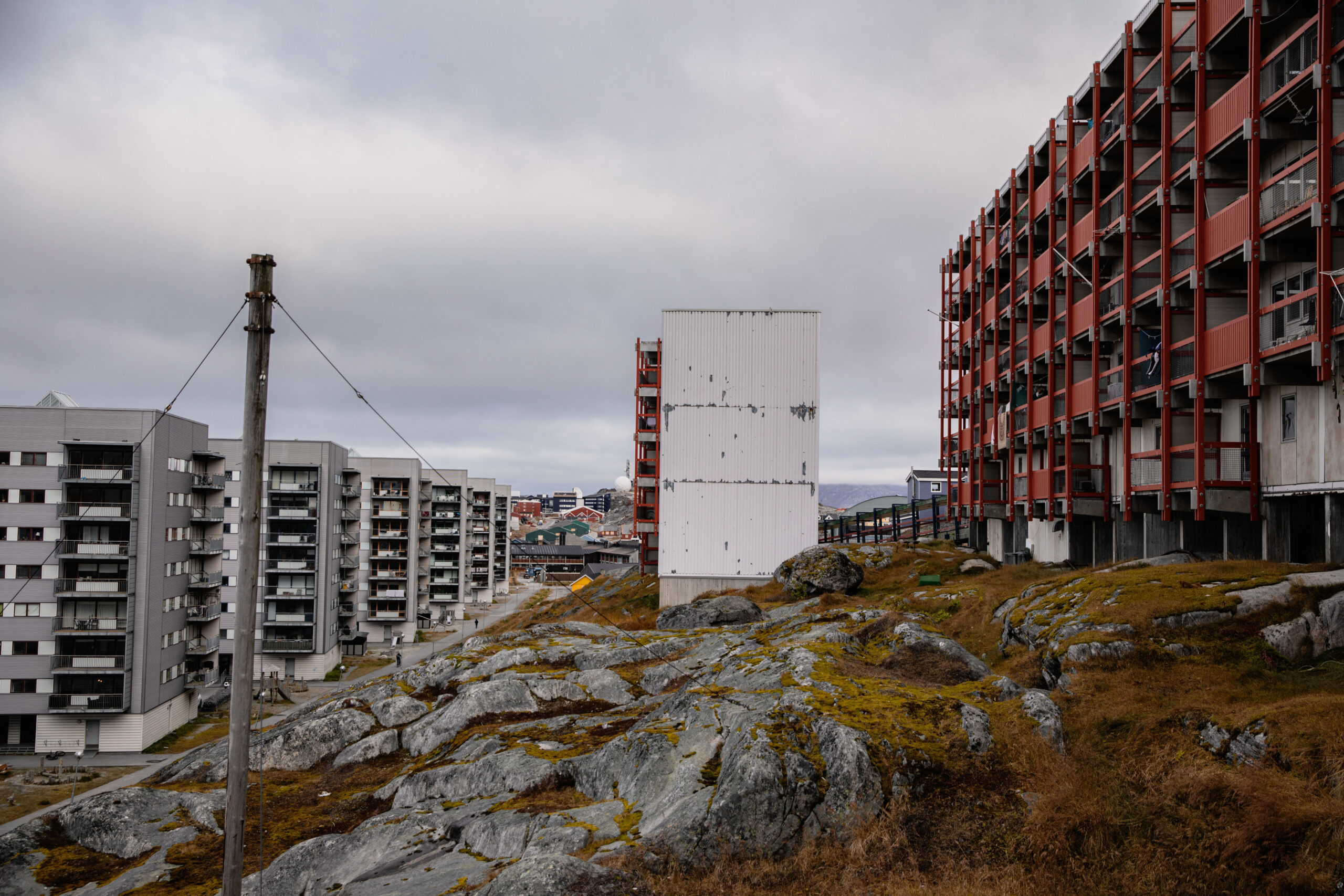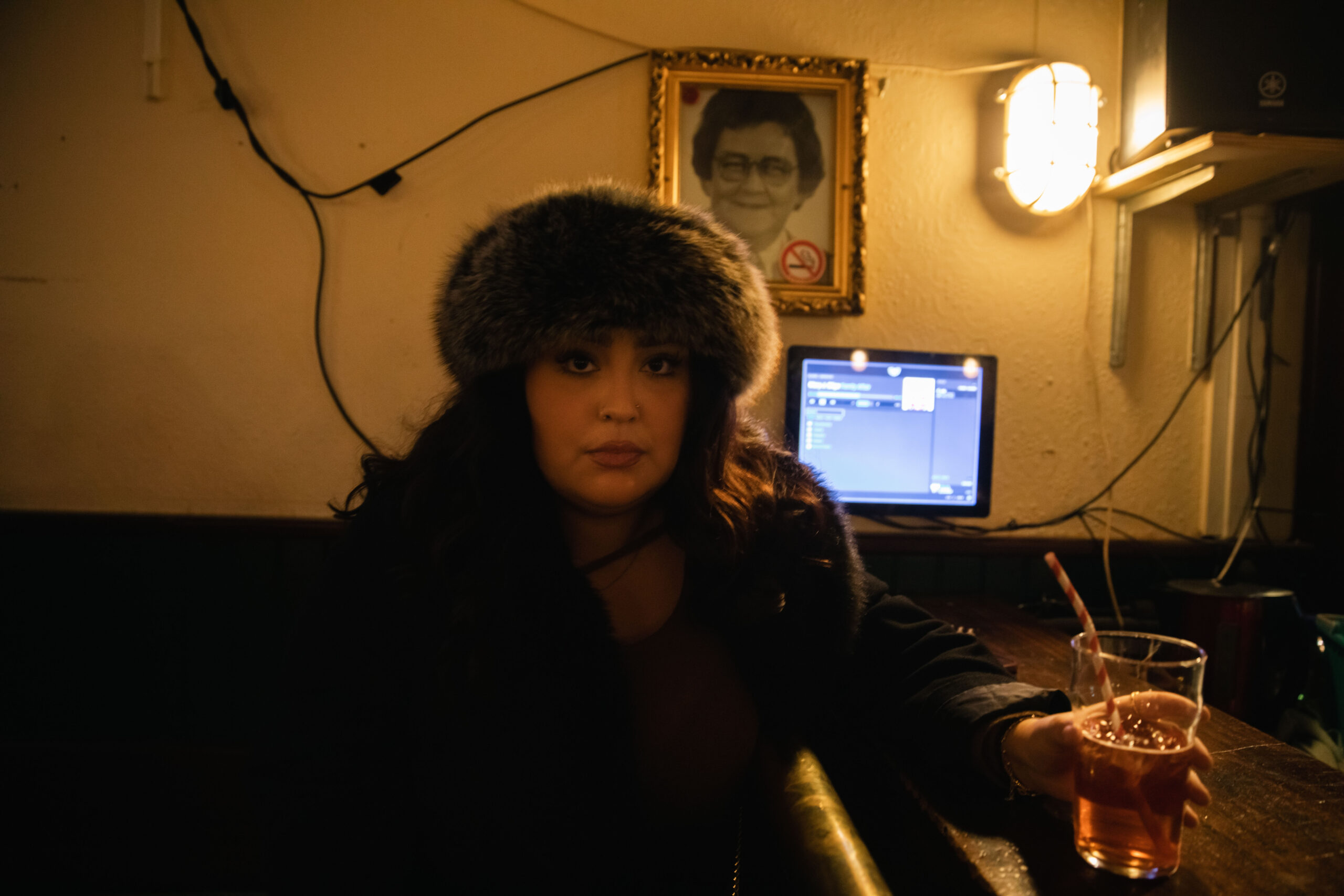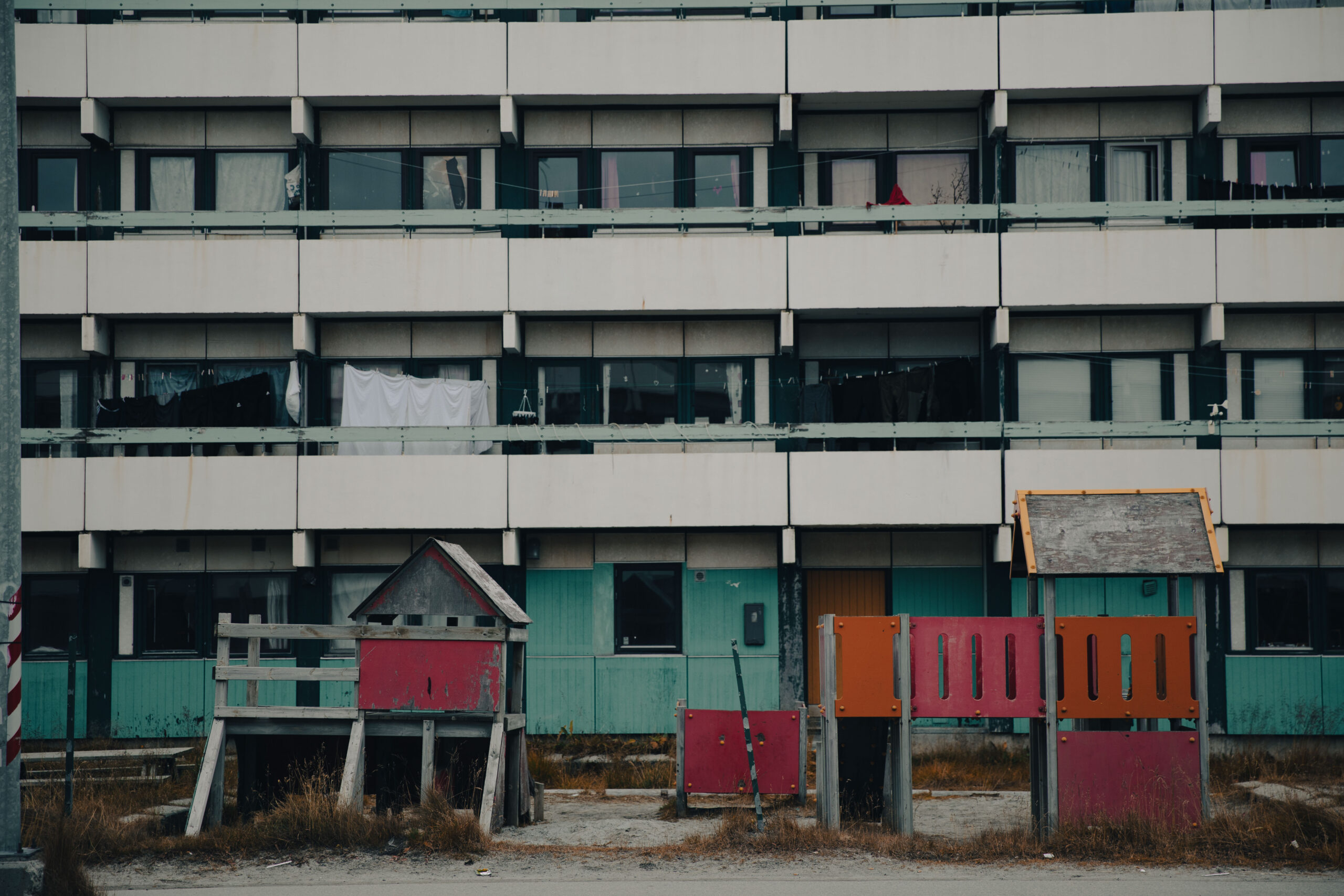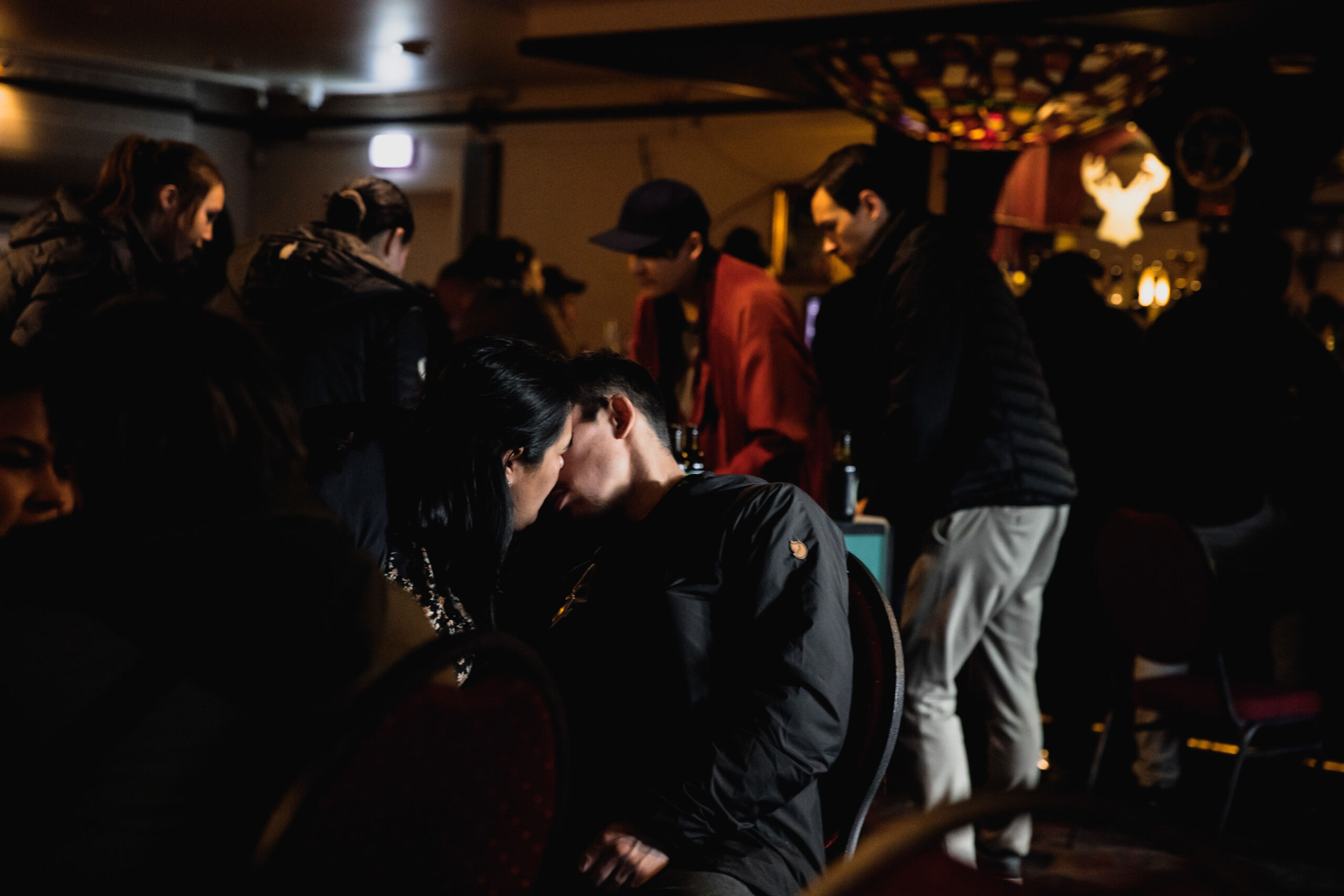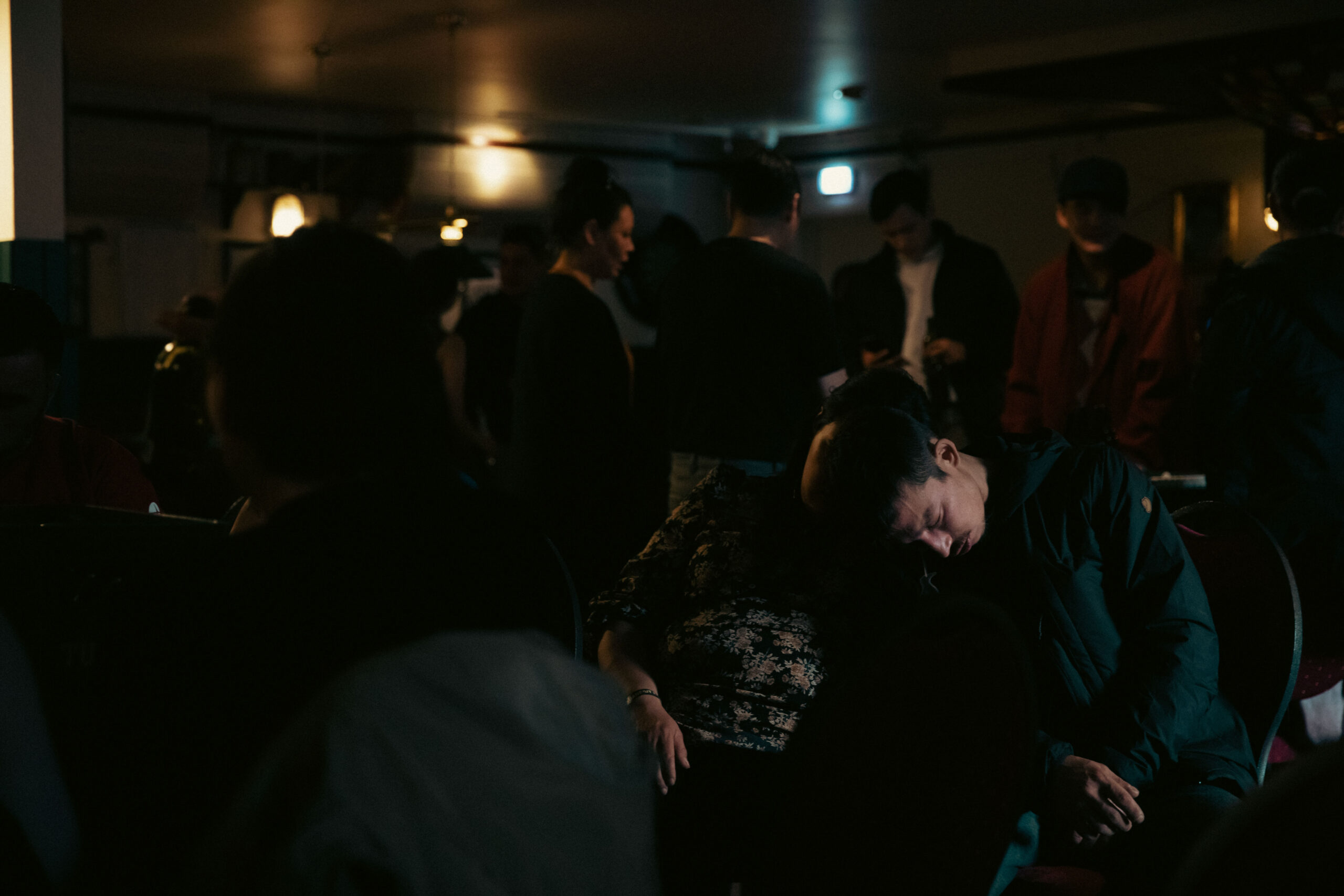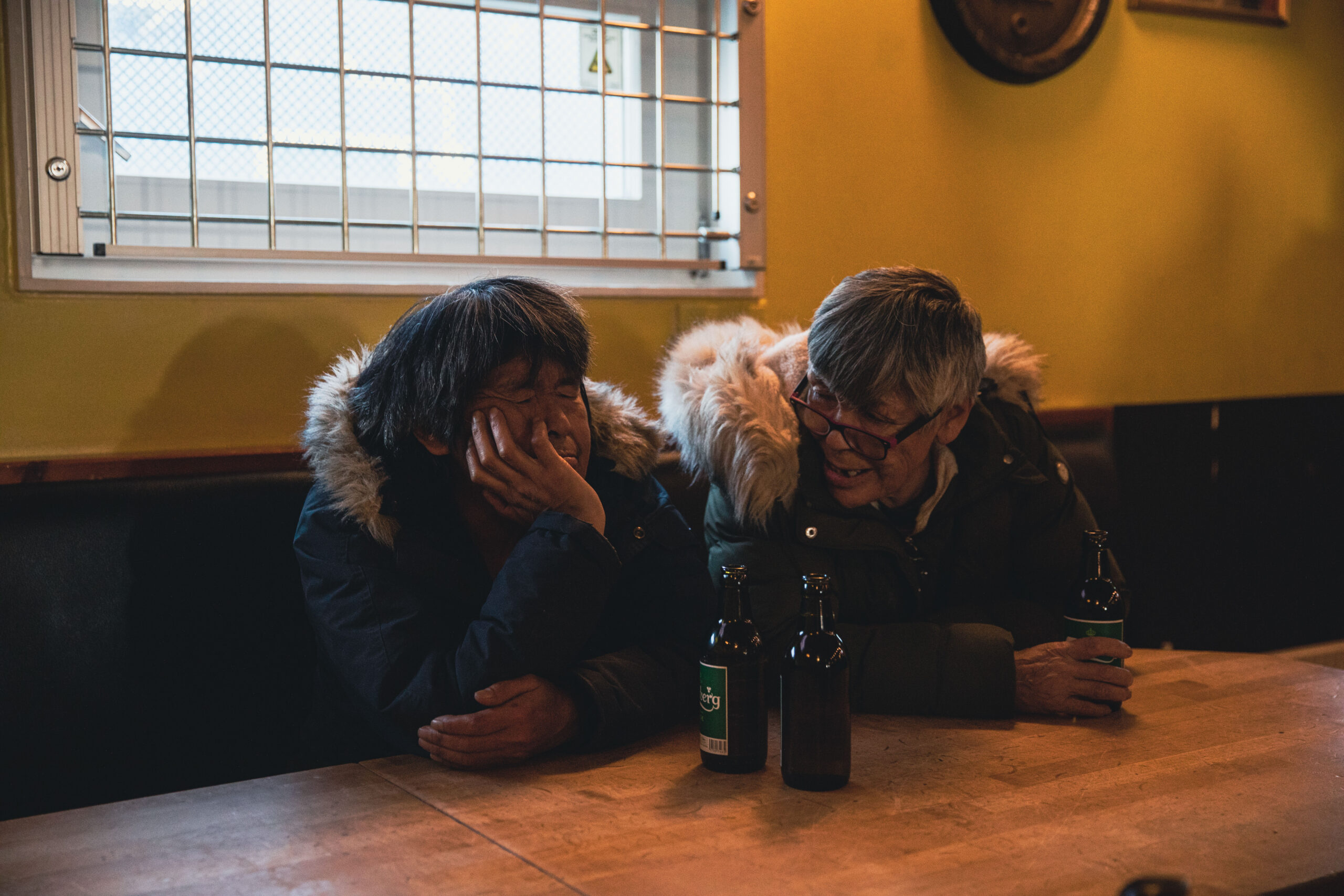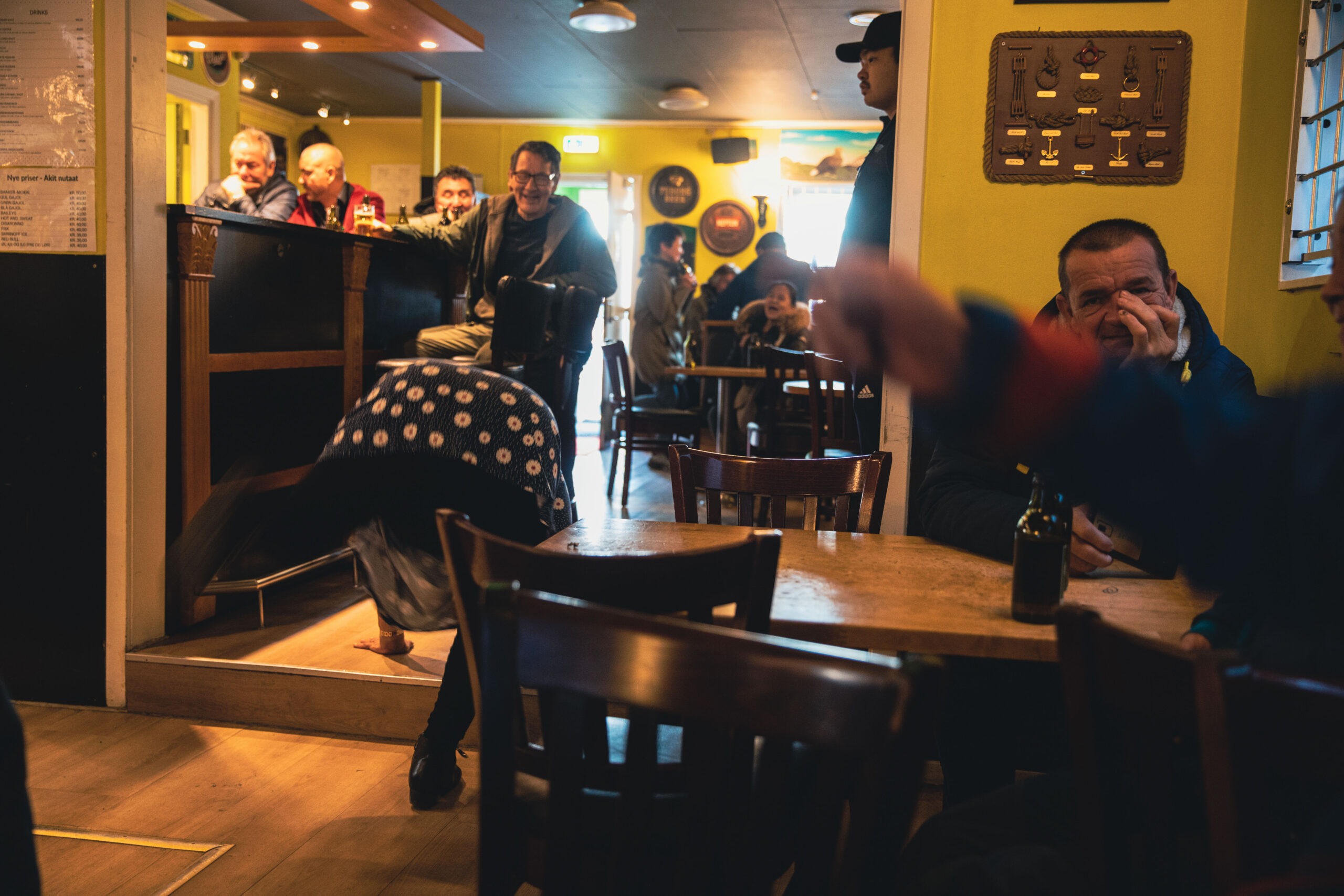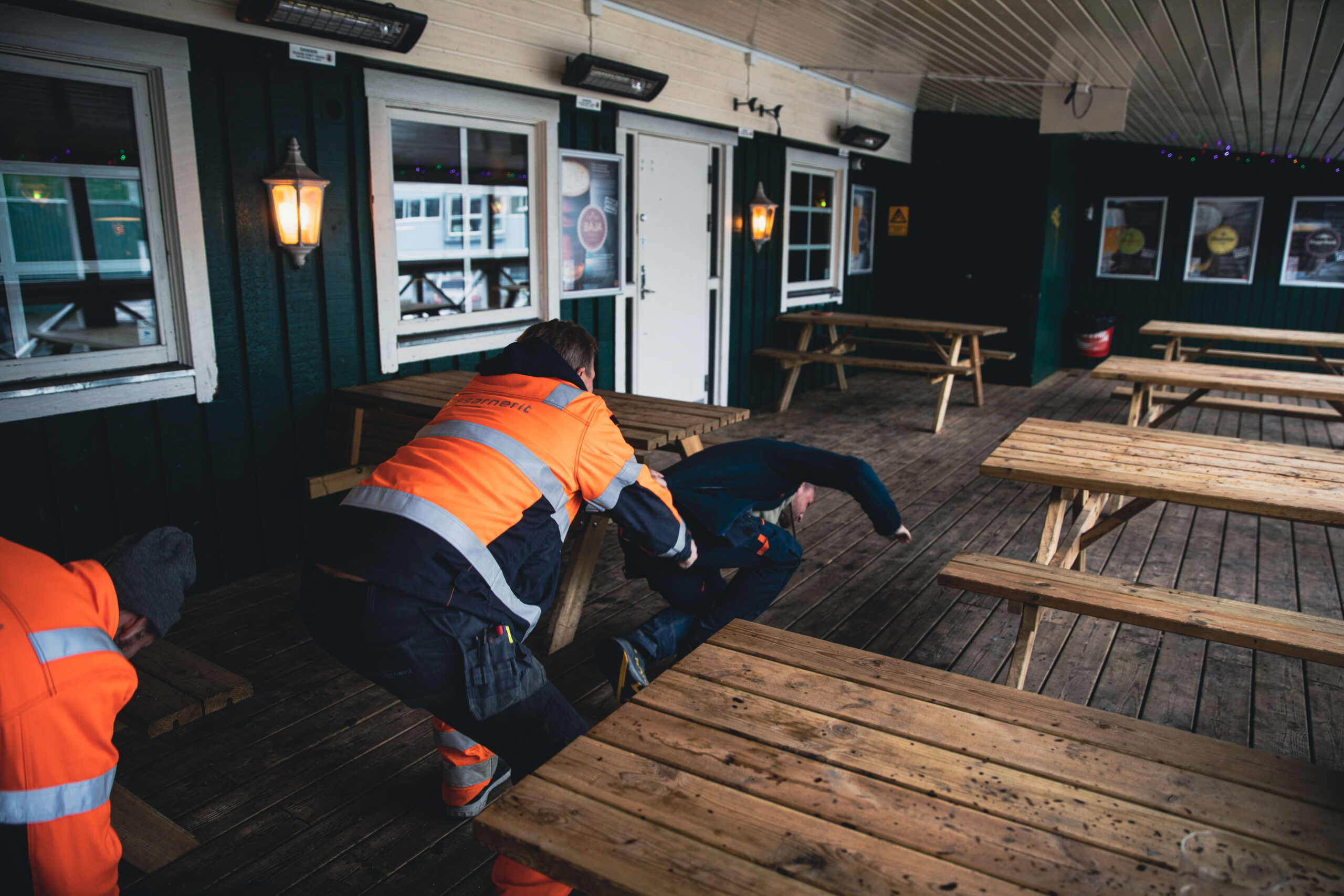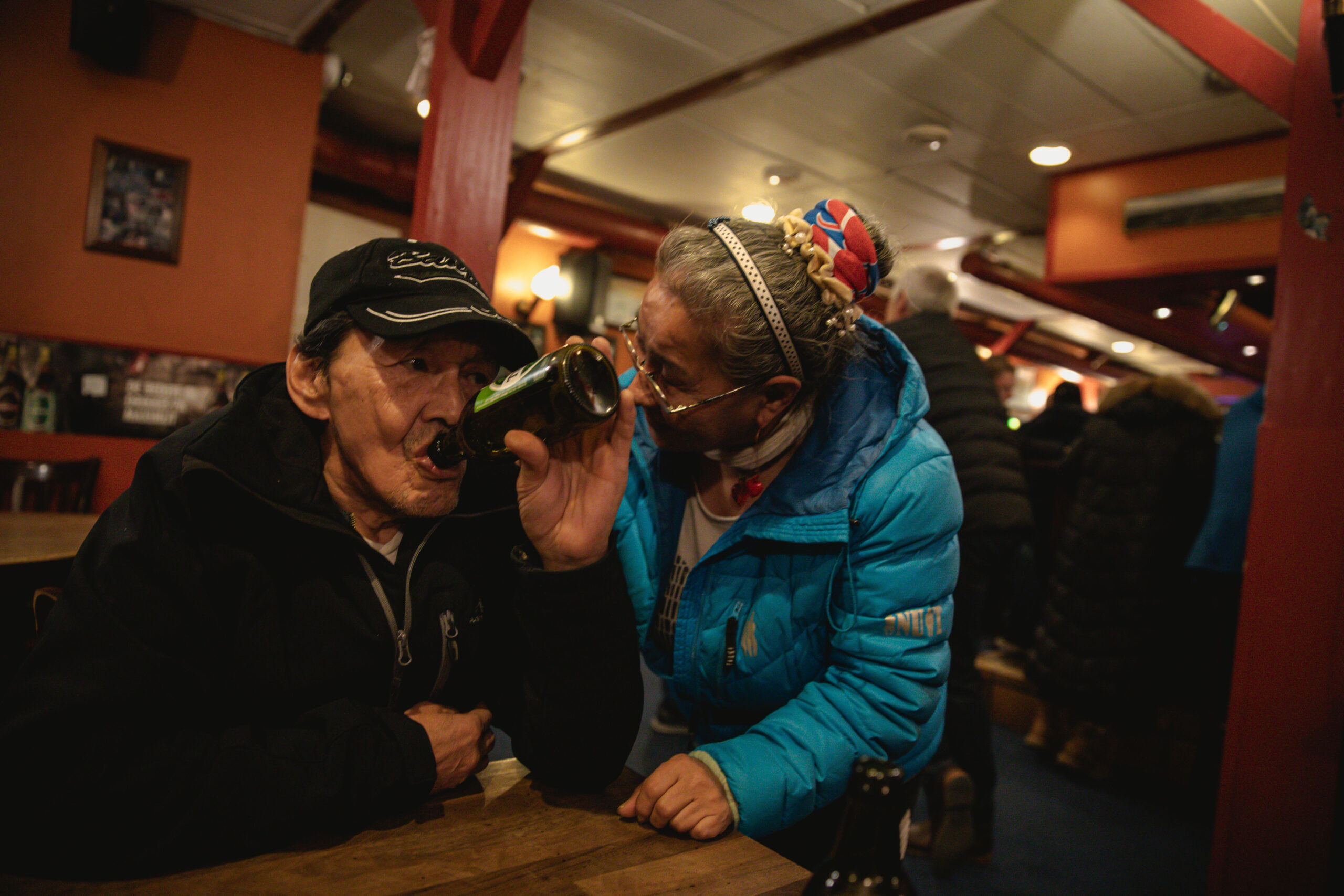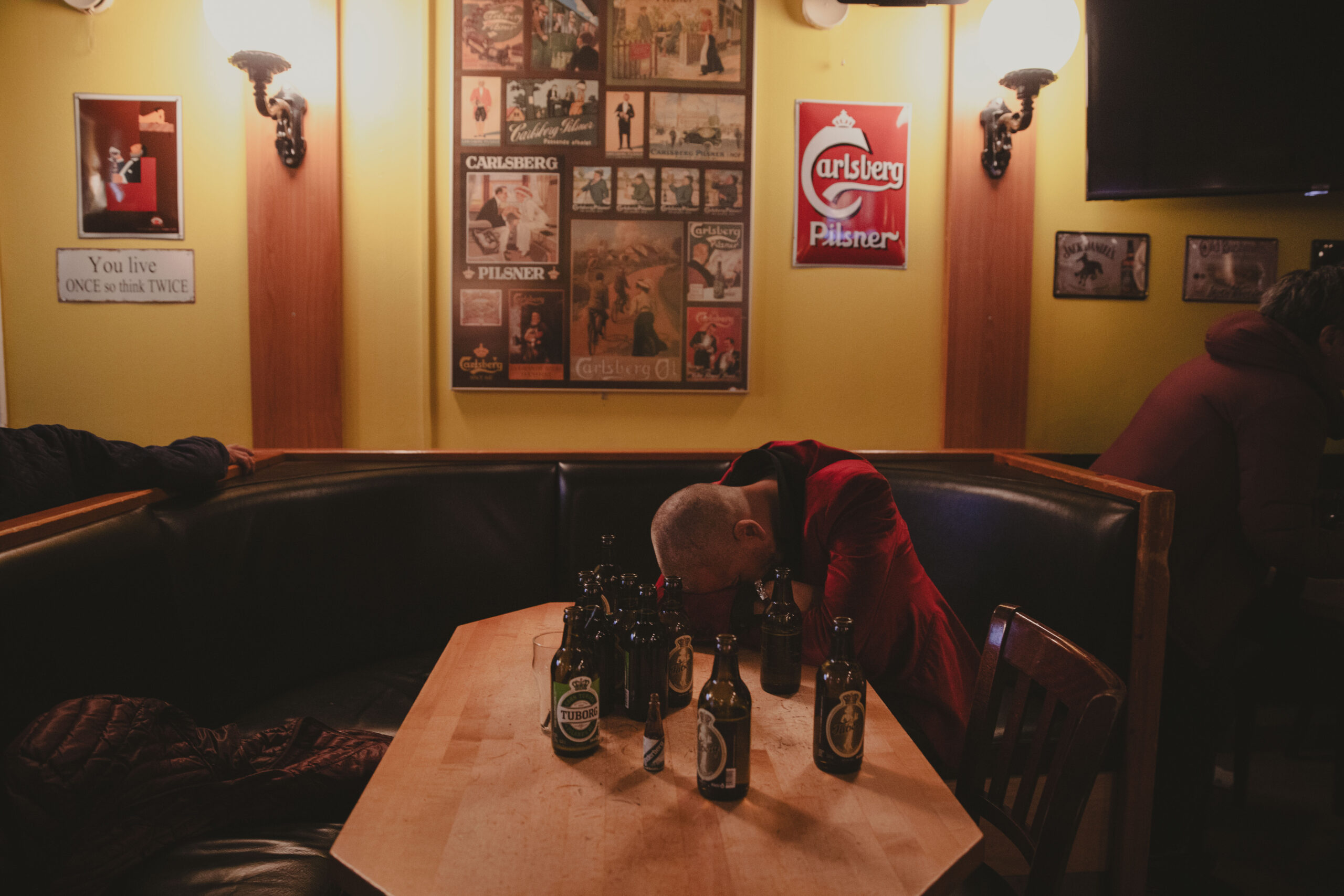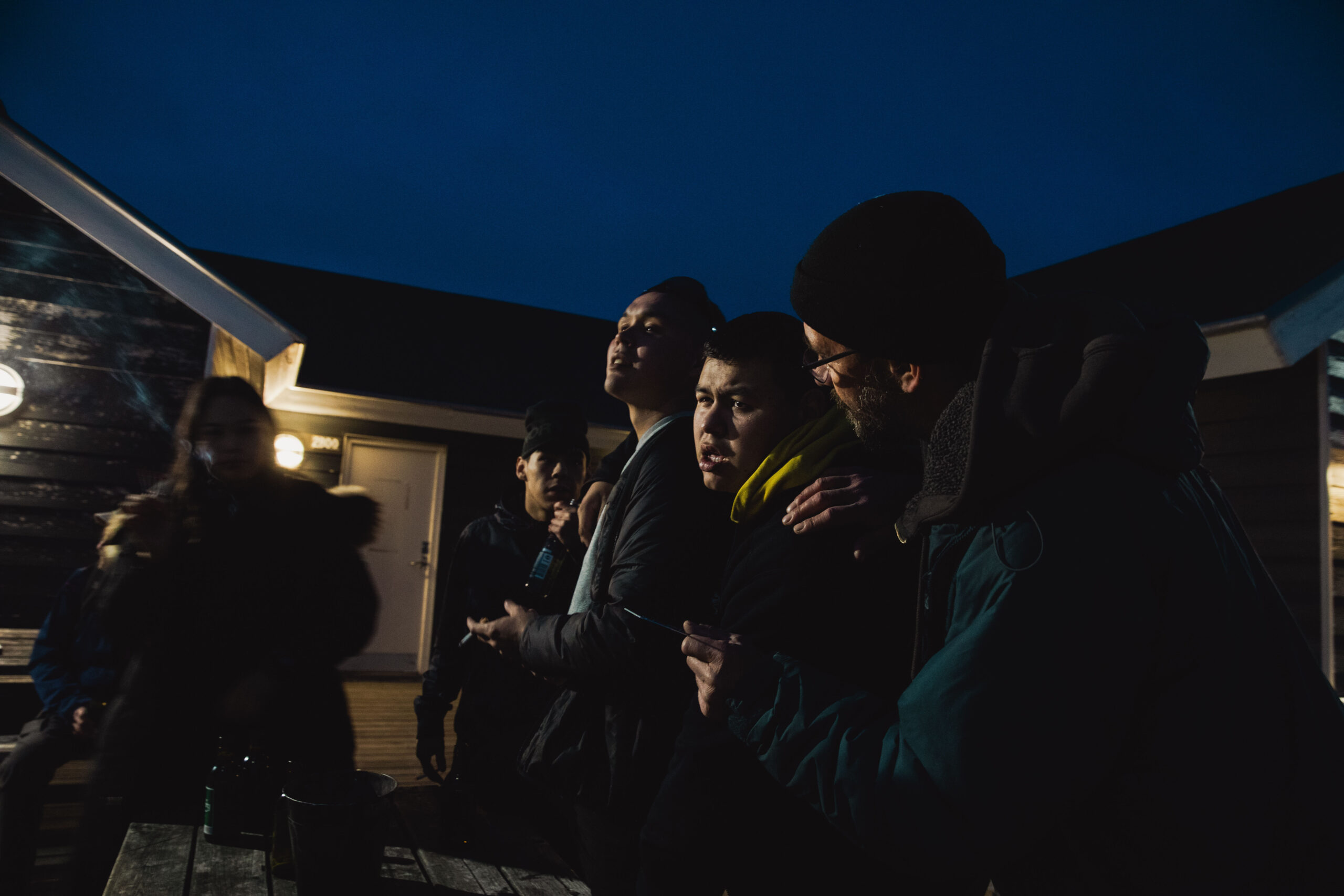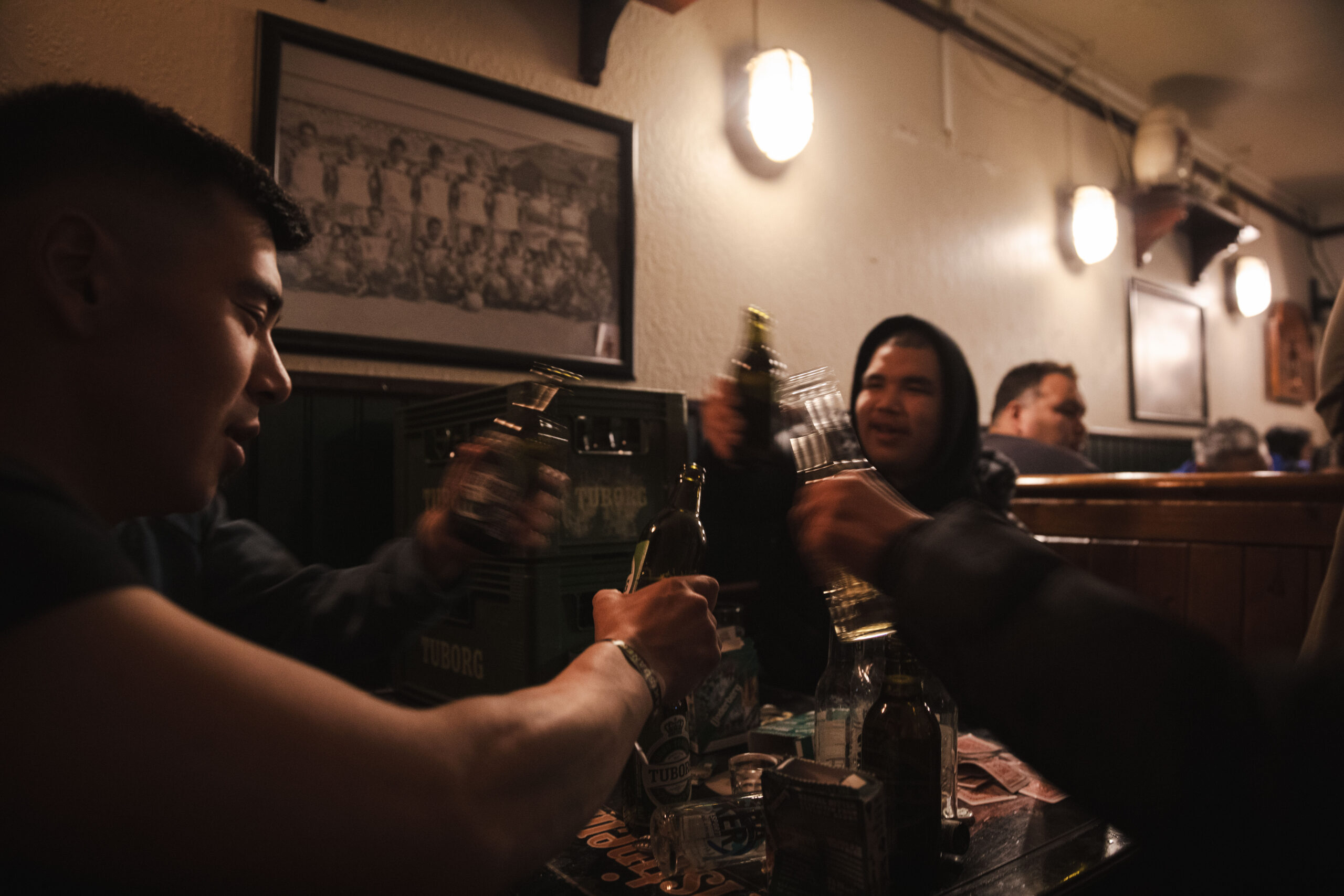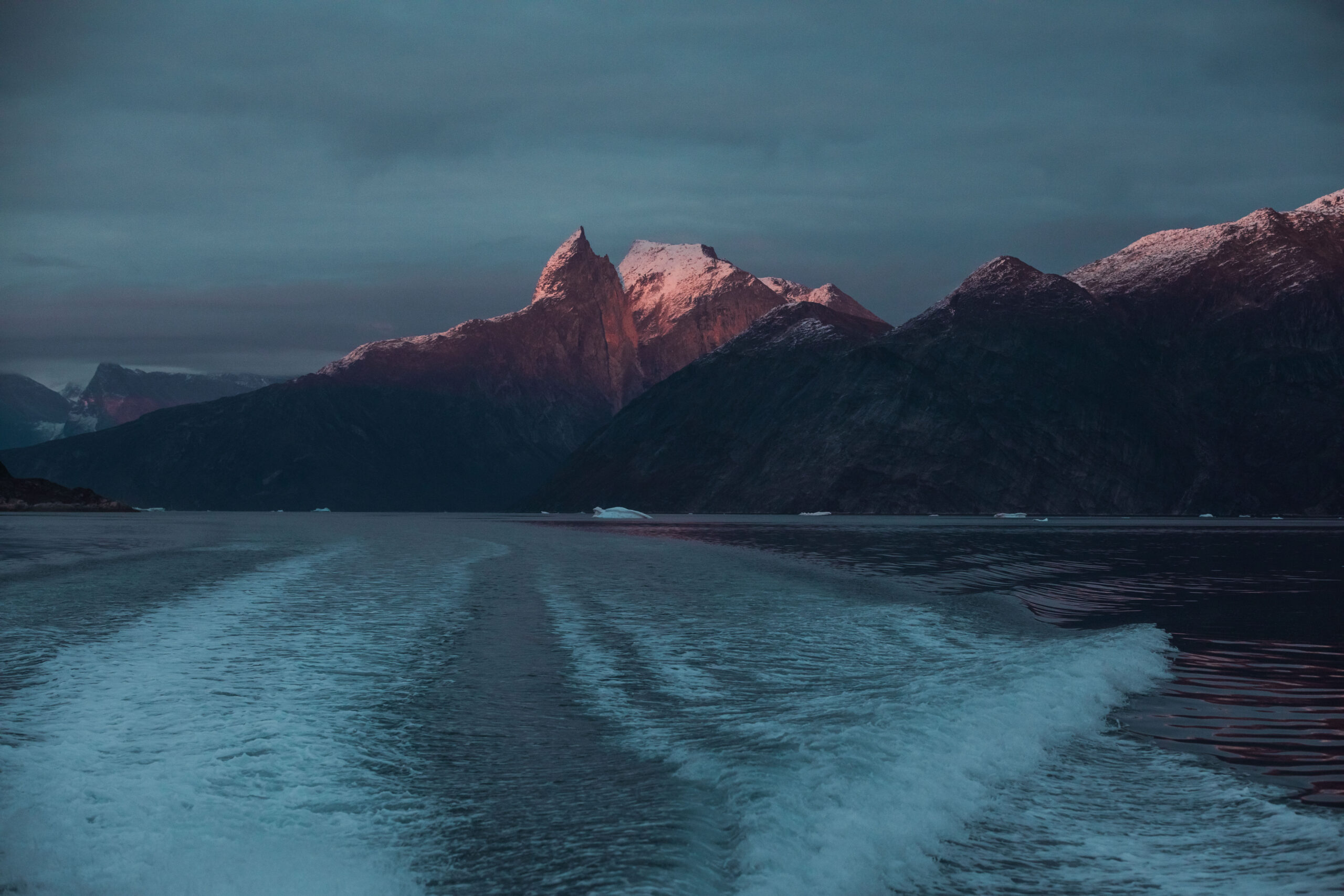Alcohol abuse and youth suicides remain among the most pressing public health crises in Greenland. In 2018, more than half of young Greenlandic women aged 15 to 24—56%—were reported to have potential alcohol problems, highlighting a deep-rooted issue in the country’s social fabric.
Nuuk, a small and isolated settlement of around 18,000 inhabitants, offers no roads leading out—only boats and flights connect it to the outside world. The sense of confinement is palpable. I’ve felt both the warmth of locals welcoming me into their pubs and the biting emptiness of the cold, desolate streets outside.
Mikkel and Rasmus arrived in Greenland from Denmark eight months ago to work on a construction site, drawn by the high wages. With little else to occupy their free time, they drink—a lot. “There’s not much else to live for,” they tell me, “except the good times in the pub with friends, old or new.”
Romantic prospects in Nuuk are scarce. Finding a long-term partner is difficult, and even casual encounters aren’t as common as one might expect. They say life here doesn’t feel particularly prosperous for them, yet they stay, caught between economic opportunity and social emptiness.
Drinking isn’t the only escape. Cocaine is prohibitively expensive, selling for up to $400 per gram, so some turn to cheaper alternatives, such as ADHD medication, despite the unpredictable and often harmful side effects. In the other picture, Mikkel and Rasmus share a marijuana joint with the bartender at a local pub—part of the small, tight-knit community where everyone knows each other, bound together by shared nights of intoxication.
Behind the laughter and camaraderie, a deeper reality lingers—one of isolation, escapism, and the search for meaning in a place where options feel limited.

